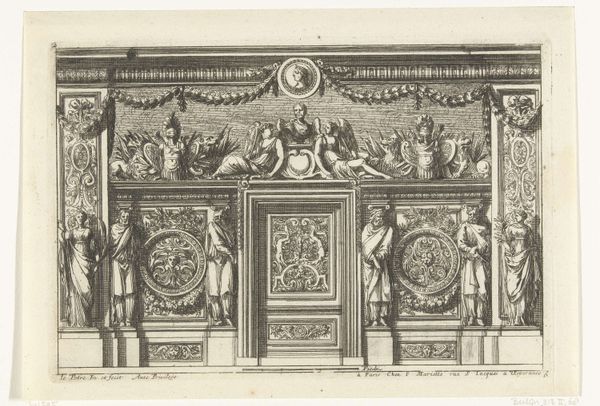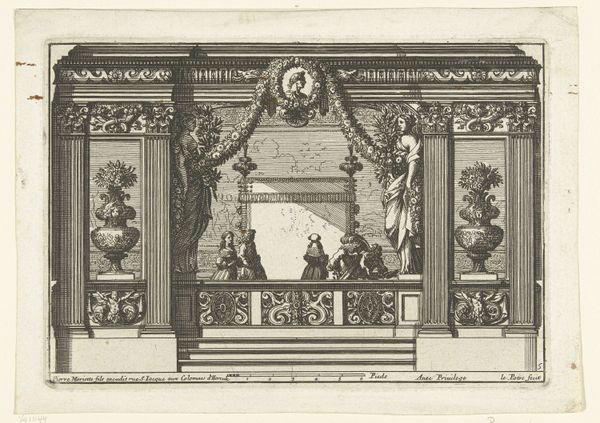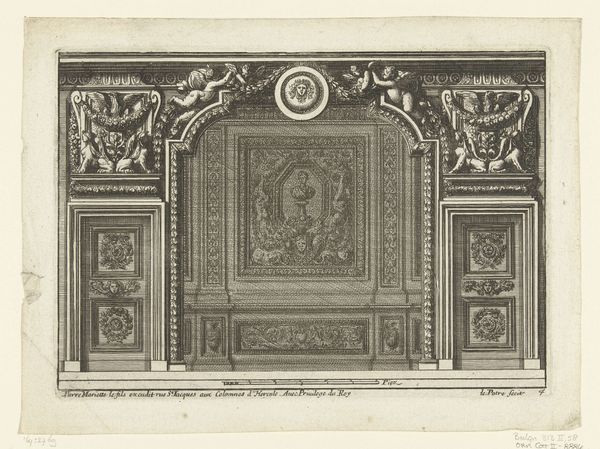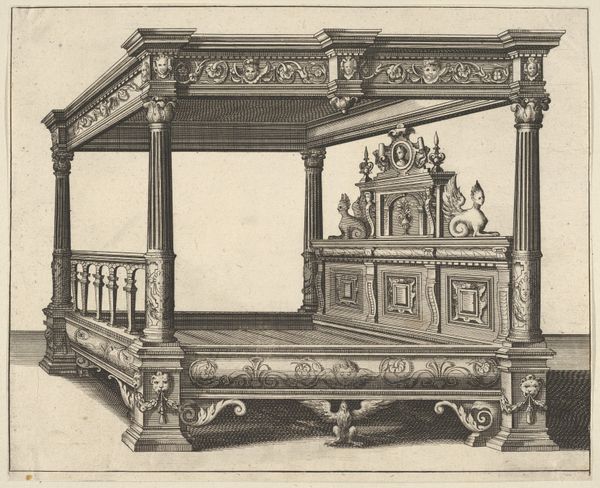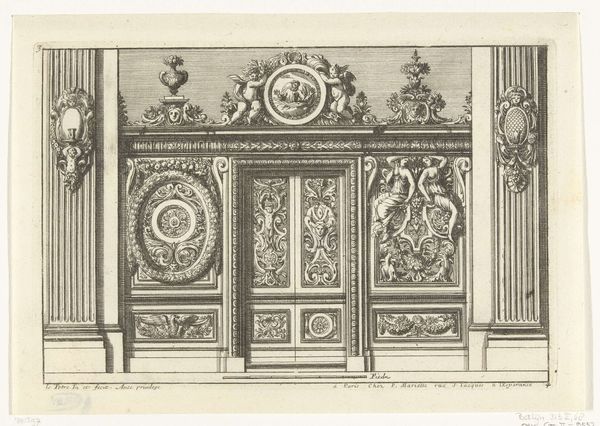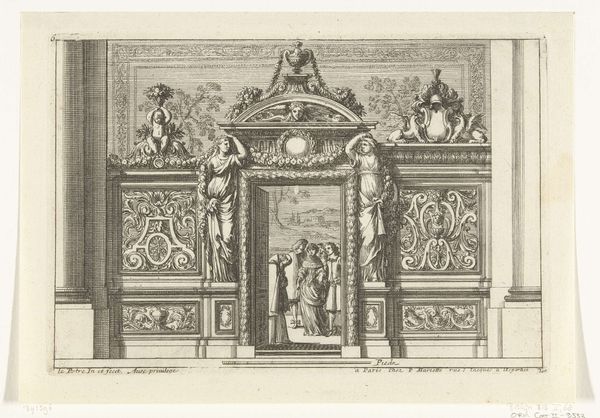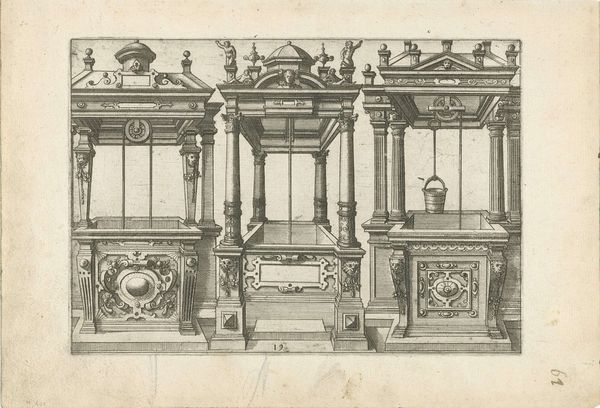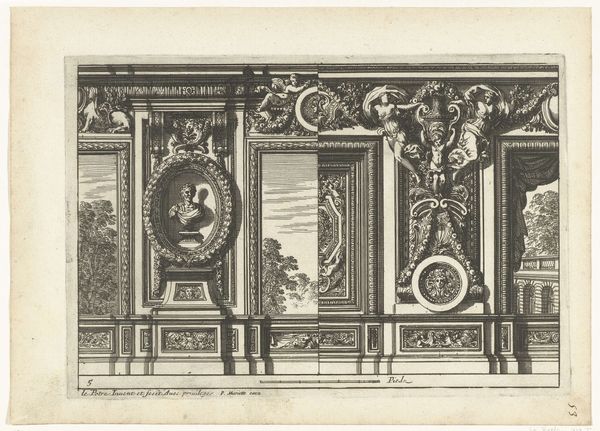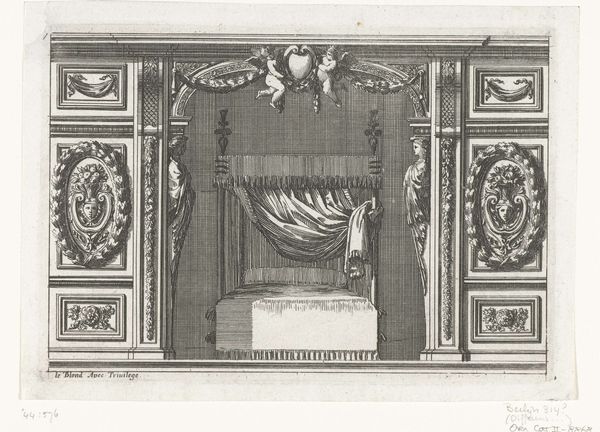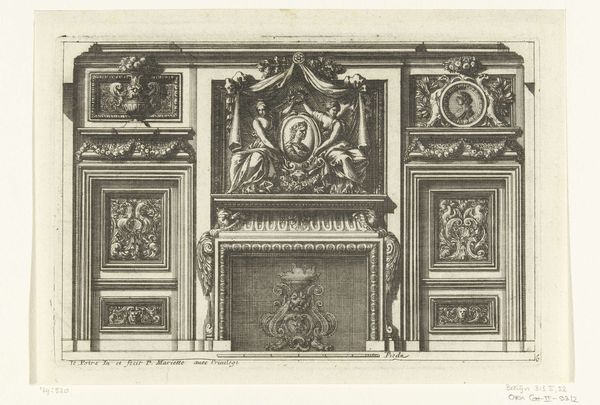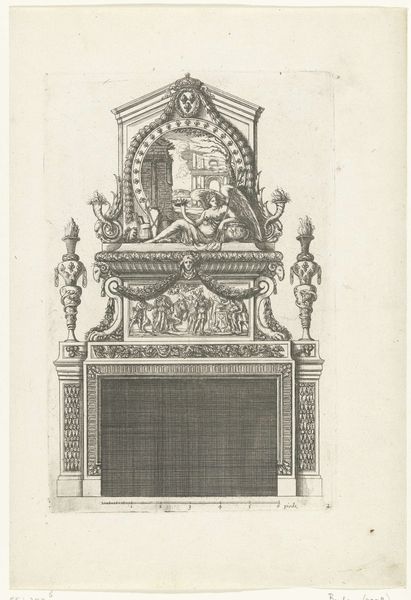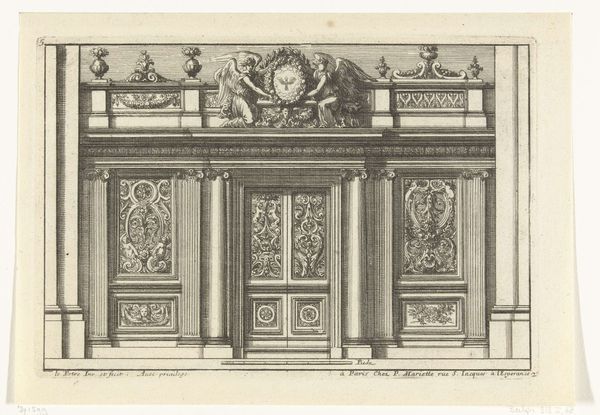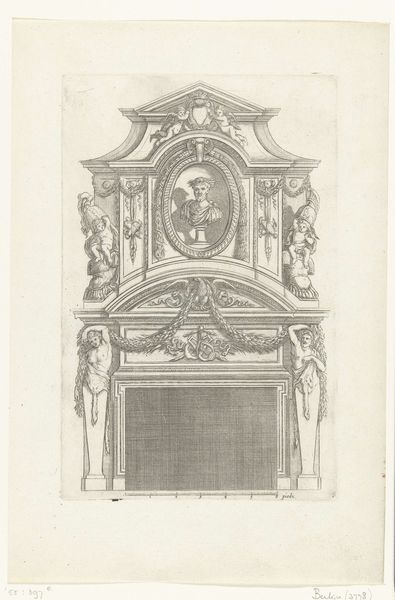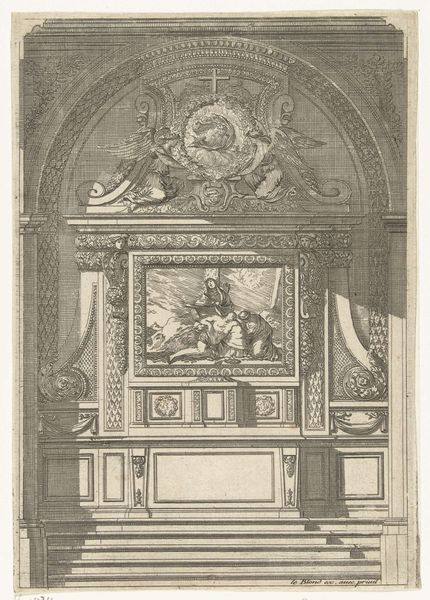
drawing, print, ink, pen, engraving, architecture
#
drawing
#
aged paper
#
toned paper
#
light pencil work
#
baroque
# print
#
pencil sketch
#
old engraving style
#
form
#
personal sketchbook
#
ink
#
pen-ink sketch
#
line
#
pen work
#
sketchbook drawing
#
pen
#
history-painting
#
decorative-art
#
sketchbook art
#
engraving
#
architecture
Dimensions: height 148 mm, width 212 mm
Copyright: Rijks Museum: Open Domain
Jean Lepautre made this print of an alcove enclosed by a balustrade sometime in the 17th century. It is, in essence, a display of power and status, reflecting the opulence and theatricality of the French Baroque style. Notice how the artist uses visual codes to communicate meaning. The fleur-de-lis pattern, the crown held by angelic figures, and the classical statues all evoke the grandeur of the French monarchy. The image presents a highly stylized version of reality. It speaks to the social conditions of the time, where the aristocracy sought to create an image of themselves as divinely ordained rulers. Lepautre was employed by the French court. So it’s reasonable to say this print served to reinforce the prevailing social hierarchy. Art historical research into court records, fashion, and interior design would help to understand how it functioned as propaganda. The meaning of art isn't just in the object, but in its relationship to the society that produced it.
Comments
No comments
Be the first to comment and join the conversation on the ultimate creative platform.
